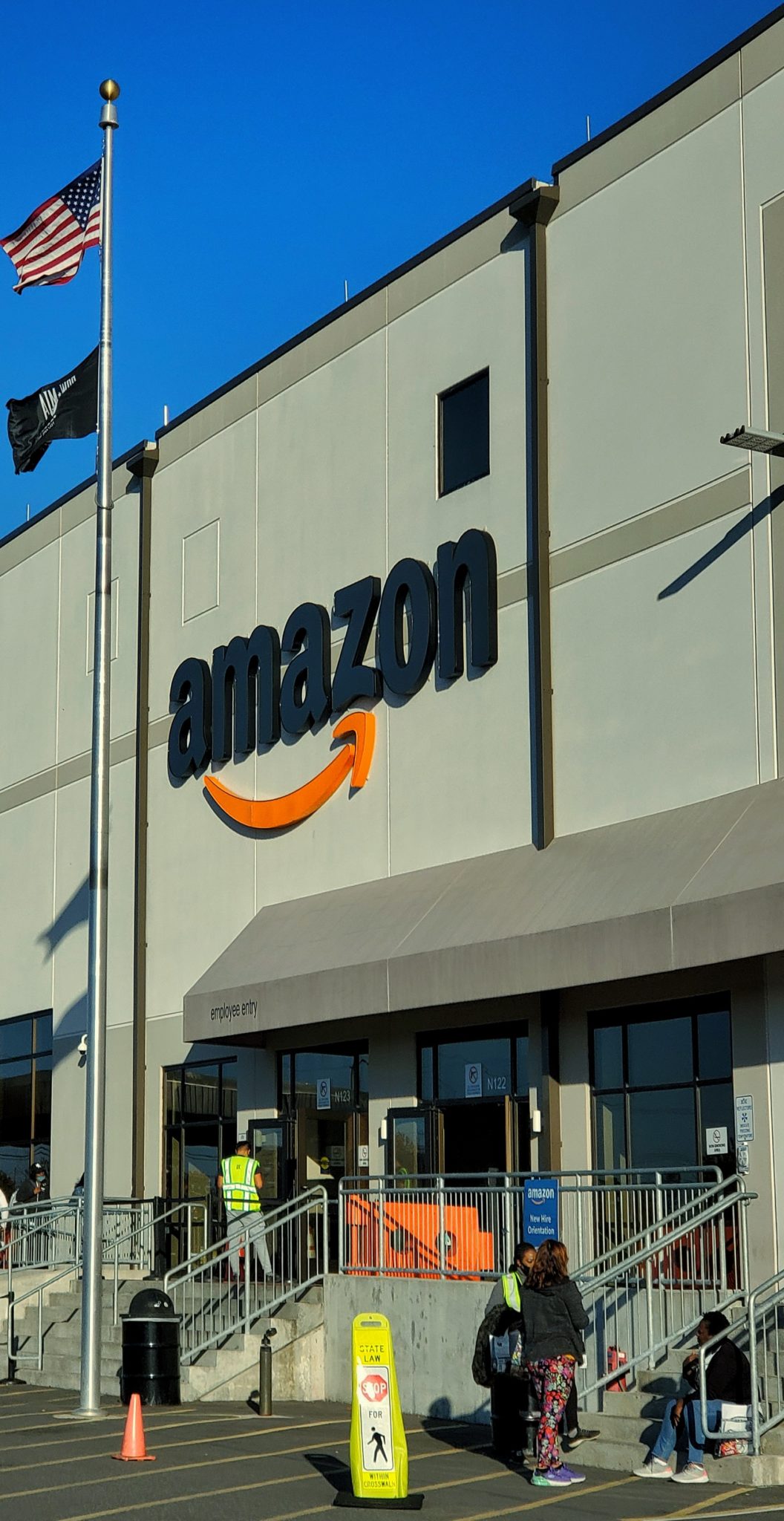Nikita Rumsey is a student at Harvard Law School.
The latest twist emanating from this year’s biggest story in labor—the historic union election taking place among workers at an Amazon facility in Bessemer, Alabama—has Republican Senator Marco Rubio coming out publicly in favor of unionization. A pro-union endorsement from Rubio was both unexpected and ironic to say the least, considering that he remains a co-sponsor on Senator Rand Paul’s proposed National Right-to-Work Act. In his statement, Rubio noted that one of his “earliest political memories was marching the picket line with [his] dad in a Culinary Workers Union strike,” which taught him that “all workers deserve respect.” Yet commentators were quick to point out that Rubio’s statement was more of a publicity stunt preoccupied with lamenting “woke” Amazon’s “cultural war against working-class values”—whatever that means—than any sort of earnest consideration of the Amazon workers’ interests themselves. Additionally, Rubio advocated for unionization insofar as it encourages a “productive relationship between labor and management,” and lamented the PRO Act for “essentially mandat[ing]” an adversarial relationship” between opposing forces. However, over Rubio’s head went the notion that the strike picket line that taught him the importance of worker dignity as a kid was itself a paradigmatic example of the very labor-management adversarialism he now disavows.
In other Amazon-related news, Jeff Bezos reportedly declined an invitation from Senator Bernie Sanders to appear at a Senate Budget Committee hearing on income inequality slated for March 17. As Sanders tweeted, he had “invited Jeff Bezos to testify in the Budget Committee next week to explain to the American people why he thinks it’s appropriate for him to spend a whole lot of money denying economic dignity to workers at Amazon, while he has become $78 billion richer during the pandemic.” Sanders has long been a gadfly to Amazon, which raised its minimum wage to $15 an hour in 2018 after Sanders joined labor advocates to publicly scrutinize the company’s vast pay disparities between top management and workers. Additionally, this week’s hearing will also include testimony from Jennifer Bates, an Amazon worker from Bessemer, which will further spotlight the union election currently underway.
Among the provisions in the $1.9 trillion pandemic relief bill signed by President Biden this week is $2.75 billion in aid for private schools. The Times reported an unlikely last-minute push by Senate majority leader Chuck Schumer, who had been lobbied by Orthodox Jewish community in New York City to secure aid for struggling parochial schools, and American Federation of Teachers (AFT) president Randi Weingarten, who signaled support for the measure despite the aid coming in part at the expense of additional public-school relief. Schumer’s move was controversial among Democrats, including Speaker Nancy Pelosi, in part because the party had largely resisted similar attempts by the Trump administration to channel federal money to private schools, including in the previous pandemic relief packages. While the National Education Association reportedly resisted this change, AFT president Weingarten noted that the measure included sufficient safeguards to ensure it was aimed at helping poor students in parochial schools who need relief as much as any public-school student during this unprecedented emergency. (Additionally, when the Times article was first published, its headline had included the words “Union Boss.” Many readers were quick to criticize the term’s derogatory connotation and emphasized that union leaders are democratically elected, prompting the paper to change its headline to “Union Leader” a few hours later.)
In local labor-related news, nurses at St. Vincent hospital in Worcester, MA are set to enter the second week of their strike against Dallas-based parent company Tenet Healthcare over staffing and safety concerns. Before the 800 registered nurses, represented by the Massachusetts Nurses Association, began their strike last week, a group of Bay State lawmakers, including Senators Elizabeth Warren and Ed Markey, as well as Representative Jim McGovern, publicly called on Tenet to make staffing and safety concessions, noting that the company had “still not made appropriate and necessary movement on the issue of staffing.” As the strike enters its second week, Tenet has shown little willingness to compromise, already having spent several million dollars on a contract for a week of replacement workers. In a showing of solidarity, UFCW Local 1445, which represents 600 patient care assistants, clerks, technicians, and other workers at St. Vincent’s, and whose contract with Tenet also expired on February 28, joined the nurses on the picket line this Saturday. Although Local 1445 has not gone on strike and referred to their participation as “informational picketing,” spokespeople voiced their support for the nurses’ concerns. Many noted that safer staffing levels means greater patient safety, pushing back on Tenet’s PR narrative that the nurses’ grievances are somehow in opposition to patient interests.






Daily News & Commentary
Start your day with our roundup of the latest labor developments. See all
July 15
The Department of Labor announces new guidance around Occupational Safety and Health Administration penalty and debt collection procedures; a Cornell University graduate student challenges graduate student employee-status under the National Labor Relations Act; the Supreme Court clears the way for the Trump administration to move forward with a significant staff reduction at the Department of Education.
July 14
More circuits weigh in on two-step certification; Uber challengers Seattle deactivation ordinance.
July 13
APWU and USPS ratify a new contract, ICE barred from racial profiling in Los Angeles, and the fight continues over the dismantling of NIOSH
July 11
Regional director orders election without Board quorum; 9th Circuit pauses injunction on Executive Order; Driverless car legislation in Massachusetts
July 10
Wisconsin Supreme Court holds UW Health nurses are not covered by Wisconsin’s Labor Peace Act; a district judge denies the request to stay an injunction pending appeal; the NFLPA appeals an arbitration decision.
July 9
the Supreme Court allows Trump to proceed with mass firings; Secretary of Agriculture suggests Medicaid recipients replace deported migrant farmworkers; DHS ends TPS for Nicaragua and Honduras